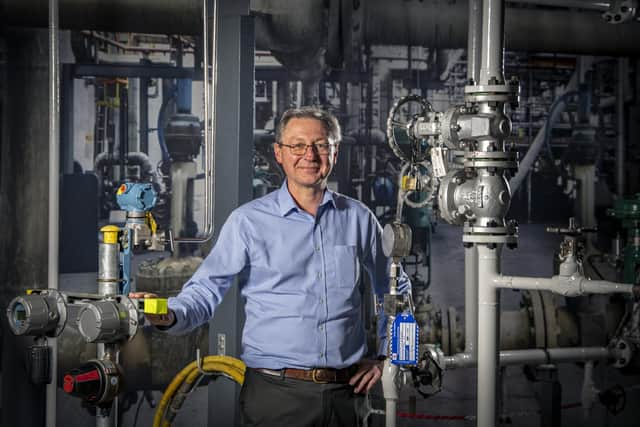Phillips 66 Humber Refinery to spend hundreds of millions on slashing carbon emissions
The site in South Killingholme, North Lincolnshire currently emits around two million tonnes of carbon per annum, with the wider Humber region currently being the area of the country with the largest amount of carbon emissions due to concentration of industry in the region.
Chris Gilbert, decarbonisation lead for the site, said a number of large-scale projects are planned to reduce its emissions by 90 per cent by the mid-2030s and create a “refinery for the future”
Advertisement
Hide AdAdvertisement
Hide AdHe said: "We have studied what it takes to reduce our carbon emissions by over 90 per cent. We have defined what we need to do and are working on several projects to make that happen. We are looking at carbon capture and looking at hydrogen to refuel our large industrial heaters in place of natural gas.


"Over the next decade we will be spending several hundreds of millions of pounds at the refinery, creating hundreds of jobs both permanently and in construction.”
The site refines transport fuels and manufactures raw materials and feedstocks used in everything from electric vehicle batteries to toiletries. It is responsible for around 15 per cent of UK demand for fuels used for transport, heating and power with a processing capacity of 221,000 barrelsper day.
Mr Gilbert said: “We are not going to sugercoat it, we refine oil and we provide the products and energy used by society. So we’ve got to find a way to produce that at a lower carbon intensity.”
Advertisement
Hide AdAdvertisement
Hide AdAlongside nearby power plant VPI Immingham, Phillips 66 is part of the Humber Zero carbon capture and storage project which aims to remove eight million metric tonnes of CO2 from the atmosphere per year by transporting it to offshore storage fields miles underwater in the North Sea.
An initial £25m investment split between the Government with Phillips 66 and VPI Immingham has been put into developing the scheme, which Mr Gilbert said could be running by 2027 subject to further investment agreements.
Should the scheme go ahead, it would create around 2,500 construction jobs and 200 permanent while safeguarding current jobs at Phillips 66 and other regional firms.
Mr Gilbert said: "Once you create the carbon capture infrastructure here, the transportation and storage infrastructure, that is starting to attract industry to the area because if you are an energy-intensive industry, you think of the advantages you have got on the East Coast with access to renewable wind and soon access to carbon capture storage.
Advertisement
Hide AdAdvertisement
Hide Ad“The scale and ambition we are trying to achieve here is huge.”
The firm hopes to hear in the next few months whether it has been successful in a bid for further Government funding which will allow it to move forward to making investment decisions.
Phillips 66 is also part of the Gigastack Consortium, which intends to produce lower-carbon hydrogen using renewable power supplied by the Hornsea Two offshore wind farm. The hydrogen will be used in the refinery’s boilers to reduce existing natural gas consumption.
The company is already producing sustainable aviation fuel using waste cooking oil for British Airways, while its current production of battery anode coke is equivalent to placing 1.3 million electric vehicles on the road every year.
Mr Gilbert said: "I’m in my 39th year in the industry and it is probably the most exciting time I can remember. We see the challenge and we are embracing it.”